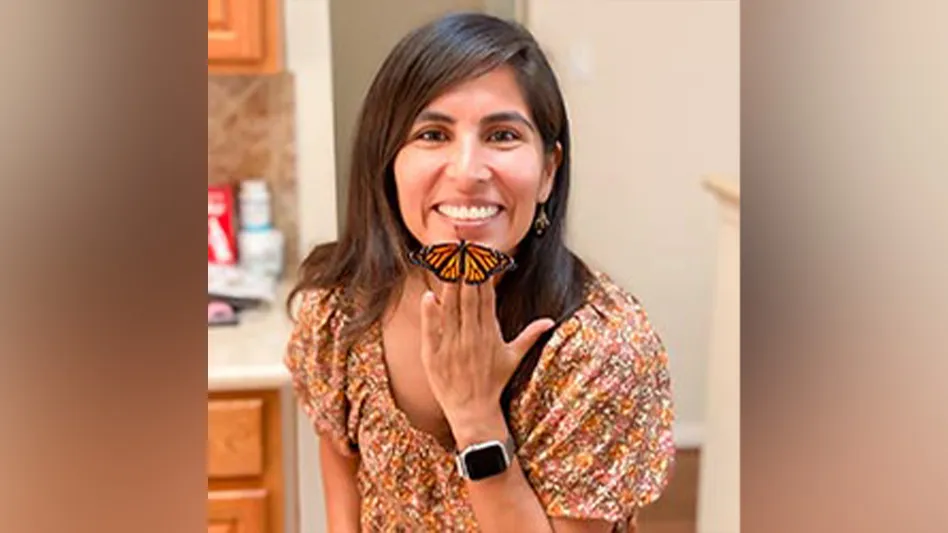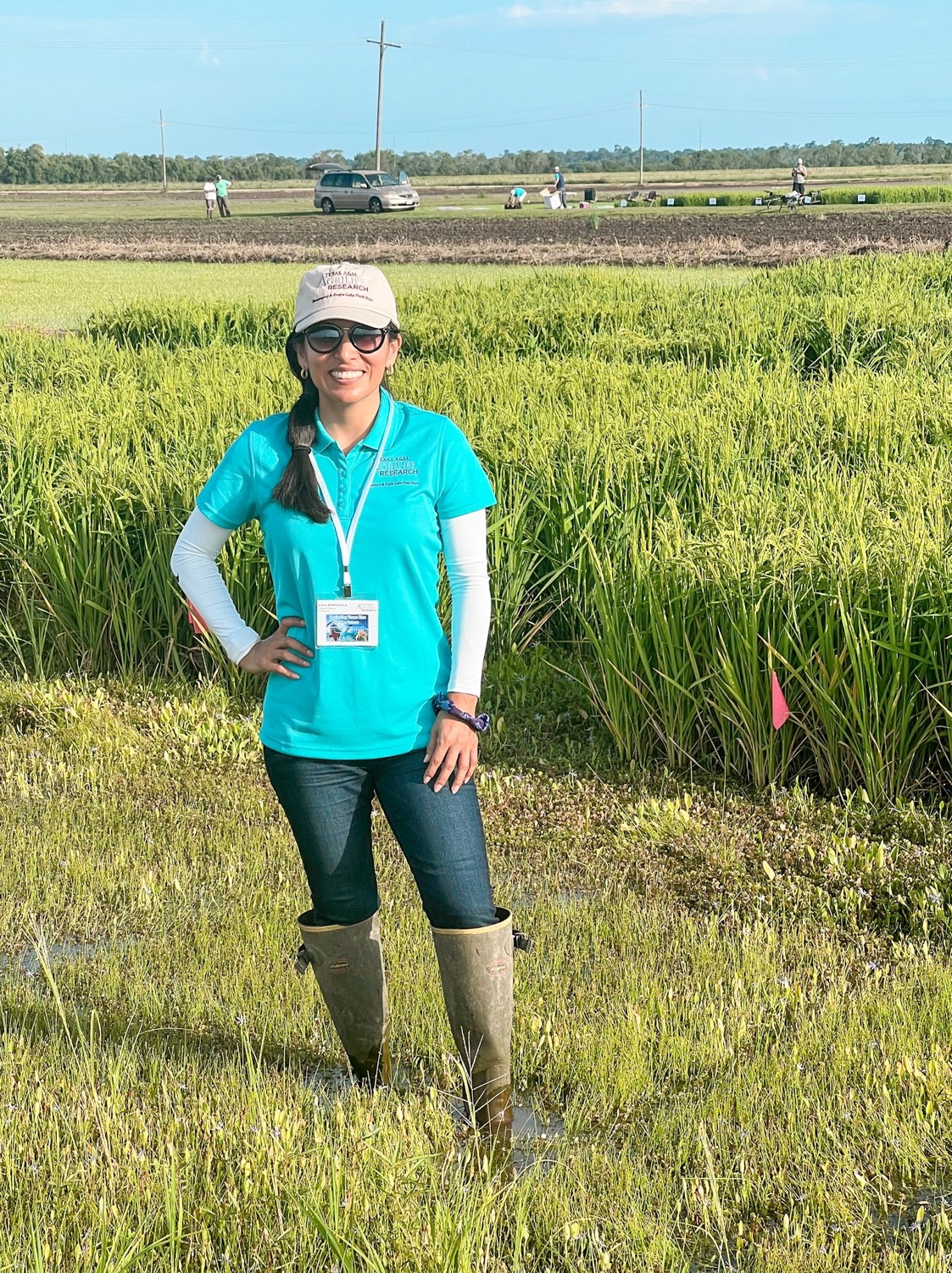
Courtesy of ESA
TEXAS — Lina Bernaola had a vision of leaving her hometown of Lima, Peru, to pursue higher education in the U.S. since childhood. What once was a dream is now reality after hard work and motivation to give her integrated pest management research a role in mitigating world hunger.
Bernaola, assistant professor in the Texas A&M University AgriLife Research Department of Entomology and vice president-elect for the Entomology Society of America (ESA), was born and raised in Lima, Peru, where she earned a bachelor’s degree in biology at San Marcos University.
After earning her degree, she worked at the International Potato Center in Lima, where she gained the motivation to pursue higher education outside of her hometown.
Bernaola packed her bags and moved to the U.S., where she pursued her master’s degree in agronomy at Louisiana State University (LSU) and continued there to earn her doctoral degree in entomology.
As a doctoral student, Bernaola had first-hand experience conducting fundamental and applied research for the main insect problems that affect the rice plants in Louisiana.
She continued that work from LSU by expanding her research in Texas. “My research focuses on the interactions of rice with its major pests of rice in Texas, and I use multidisciplinary tools to study these complex interactions, including agronomy as well as insect physiology,” she said. “My research seeks to identify and develop sustainable and cost-effective management practices for insect pests of rice.”

The rice water weevil (Sitophilus oryzae), a small, snouted beetle, is one of the main pests known to attack rice crops, Bernaola said. “This pest has been controlled by utilizing insecticide control based on seed treatments,” she said.
In addition, she mentioned an emerging rice pest: “We have another new invasive pest called rice delphacid (Tagosodes orizicolus), and I study the biology of the insect to understand how we can utilize information so that we can find alternative tools to reduce the pest pressure.”
Bernaola added, “Beyond 2025, if we don't control the different pests that we have in different crops, we may have food shortages. I feel my [role] as a researcher is important because we need to make sure that we have a steady supply of this staple crop in the future by reducing pest pressure that we have in the field, and that we try to control this every year.”
Bernaola said the intense pest pressure within crops is primarily dealt with in the southern parts of the U.S., and in different parts of California.
“Because of these environmental conditions, those are the preferred place for all the insects to be,” she said. “I love to work with [rice] plants because it's a model system that you can study many insects, and it makes it more attractive to me to understand the physiology of the rice plant and the interactions with other rice pests.”
Making History as the First Latina President of ESA
Bernaola will become vice president of ESA this November and take presidency in November 2024. She will hold the title of being the first Latina president of the association, and also the first president to be early in her career, having started her teaching at Texas A&M one year ago.
While Bernaola is excited to see the progression made in the association during her term, she’s faced several obstacles along the way being a Latina woman in the entomology field in the U.S.
Bernaola said her obstacles started as a student pursuing her graduate studies.
“English isn’t my first language,” she said. “Even though I spoke English, I still had to put some extra work to comprehend slang and some technical terms. This really gave me the motivation to improve my English by surrounding me with native speakers, such as my husband.”
She added that many growers and crop consultants are males who have many years of experience. Bernaola has to continue to remind herself that she is still early in her career and has opportunities to grow and learn in the field.
“I just need to prove that I am good in what I do and time will tell,” Bernaola said.
Bernaola first got involved in ESA when she was a graduate student and quickly realized she had to leave her comfort zone to develop soft skills and interact with other professionals.
“As a student, I participated in several committees. I was the chair of the student affairs committee. I was also the student representative to the governing board during two consecutive terms, so four years in total,” she said. “[These committees] helped me realize I could also run for president of ESA.”
Bernaola said she carries the honor of being the first Latina woman and first early-career president of ESA with pride.
“It feels like a lot of responsibility, and I feel that I have to lead by example, which I hope I can do well. I have all the desire and intention to do that,” she said. “I am the first Latina president in ESA, but I definitely won’t be the last.”
Latest from Pest Control Technology
- SiteOne Hosts 2024 Women in Green Industry Conference
- Veseris Celebrates Grand Reopening of the Miami ProCenter
- Rollins' 2024 Second Quarters Revenues up 8.7 Percent YOY
- Fleetio Go Fleet Maintenance App Now Available in Spanish
- German Cockroach Control Mythbusting
- Total Pest Control Acquires Target Pest Control
- NPMA Workforce Development Shares Hiring Updates
- Certus Acquires Jarrod's Pest Control





